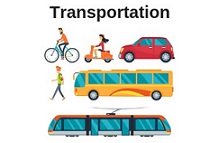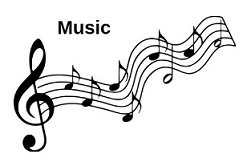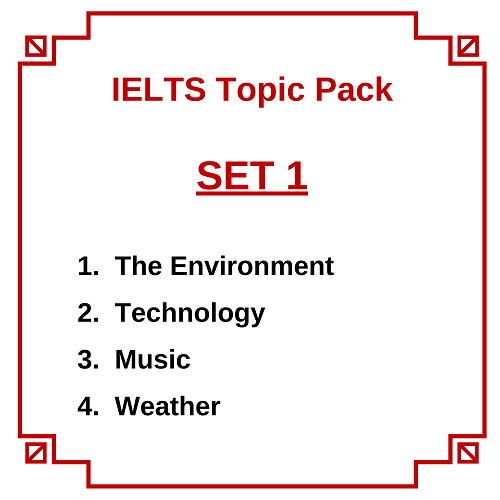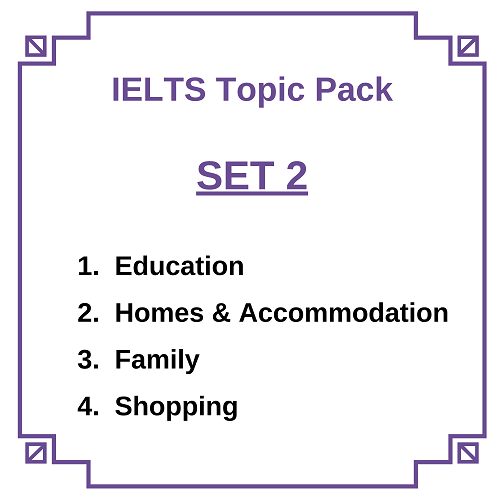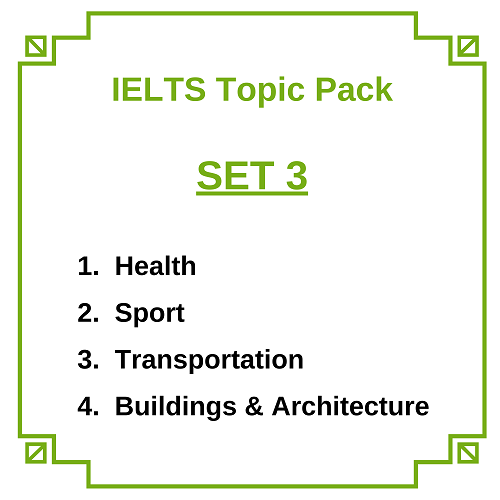Key IELTS Vocabulary
Top 6 Types of IELTS Vocabulary & Topic Word Lists
Vocabulary makes up 25% of your mark for the Writing and Speaking parts of the IELTS exam. Knowing a broad range of words is also essential for scoring well in the Listening and Reading tests.
However, vocabulary is far more important than this. It is, in fact, the most important skill area you need to master when learning English.
Why?
Because vocabulary is what spoken and written language is. That’s all language is.
Here’s what I mean.
Spoken and written language is:
words used in a structured way to communicate meaning.
When you study a language, you do three things, you:
- Learn some words
- Learn
how to change their form according to these rules
The better you get at this, the more fluent you become, but it’s all about the words.
What is Key IELTS Vocabulary?
With the average native English speaker estimated to have a vocabulary of 20,000 to 30,000 words, where do you start?
What are the best words to focus on to build up a great IELTS vocabulary?
Here are the four types of vocabulary I recommend all my students to concentrate on:
1) Common words
2) Versatile words
3) Topic-related vocabulary
4) Chunks of language
Let’s look at each of them in turn.
Vocabulary To Focus On
#1 Common words
First, you’ll need to learn key words that are part of everyday conversations and written text such as found in newspapers and magazines. This is where most English learners start.
This will be the vocabulary that you hear and see most regularly as you study English. You will come across it as you,
- talk and listen to English speakers or advanced learners
- read
popular texts such as magazine articles
You need to be doing these sorts of things every day and recording new vocabulary.
I give detailed instructions on the best way to record vocabulary on this page:
How to Learn Vocabulary for IELTS
Please read this page before starting to work on the vocabulary topics lists because it outlines important recommendations about what you should and should not do when learning IELTS vocabulary.
#2 Versatile words
Versatile means to be adaptable to many different situations. With tens of thousands of possible words to choose from, it makes sense to focus on those that you can use in as many different contexts as possible.
You’ll get better at recognising them the more you work on IELTS practice questions. As you see new vocabulary think, “would that have been useful for answering other questions I’ve seen?” If the answer is “yes”, record the word or phrase and learn it properly. I explain what I mean by ‘properly’ on the ‘How to learn IELTS vocabulary’ page mentioned above.
#3 Topic-related vocabulary
Whilst it is only in Part 1 of the Speaking test that there are common topics, there are many subjects that appear regularly in the IELTS exam. You can’t know what will come up in your test but it’s still a good idea to learn vocabulary related to popular subjects, for example, health and fitness, education, technology and the environment.
These types of common topics could come up in any part of the IELTS exam. You might be asked to talk or write about them, or they could be the focus of reading or listening activities.
It’s for these sorts of topics that I’ve created word lists and also collected together practice questions. The lists are intended to make it quick and easy for you to practice using the vocabulary which will help you to learn it.
They will save you time researching the topics and having to look up the meaning of less common words and phrases.
The practice questions relate to the Speaking test because this part of the exam offers you the broadest range of possible questions on each topic to practice on. However, the vocabulary is equally relevant for the Writing, Reading and Listening tests.
IELTS Vocabulary – Common Topics
Don’t learn lists of words
These vocabulary lists are not intended for you to go away and try to memorise all the different words and phrases. That's not what learning IELTS vocabulary is all about.
I have created them as a resource for you to use when answering practice questions on the respective topics.
Focus on the words and phrases you find most useful and most comfortable using. Add them to your vocabulary notebook and learn them properly, but don’t waste your time trying to memorise them all.
#4 Chunks of language
English, in common with most other languages, contains a lot of idiomatic language.
What is idiomatic language?
Idiomatic language is groups of words, or chunks of language, that has a different meaning when used together to the meaning of each separate word.
For example,
- only time will tell – having to wait and to see what the future holds
- I think I’ve done alright in my IELTS exam but only time will tell.
- catch up with – talk to or meet up with someone you’ve not seen for a period of time and find out what they’ve been doing
- I don’t have much time to go out during the week but I love catching up with my friends at the weekends.
- off the top of my head – say something without careful thought or investigation
- I’m not sure how many people have confirmed they’re coming to the wedding but off the top of my head, I’d say around 40.
The only way to add this type of language to your vocabulary, and to be able to use it correctly, is to learn it as chunks of language.
You’ll find that the topic words lists I’ve created for you are composed mainly of idiomatic phrases because this is the vocabulary that you are least likely to know already but will be some of the most useful to you.
Key IELTS Vocabulary
There are also two specific types of words that are very important to learn – synonyms and antonyms.
Synonym – a word that means exactly or nearly the same as a given word
For example:
true: genuine, accurate, factual, correct
Antonym – a word that means the opposite to a given word
For example:
energised: tired, exhausted, drained, fatigued
Why are they so important?
They are extremely useful because a key skill you need to learn in order to do well in the IELTS exam is paraphrasing.
To paraphrase is to ‘state something written or spoken in different words’. For example,
- Nearly all the guests who went to the event fell ill with food poisoning the following day.
- The majority of guests who attended the event went down with food poisoning the next day.
These two sentences say exactly the same thing but using different words.
So, it’s vital to know a few synonyms of common words, and a couple of antonyms will also be useful.
You can see in this table of marking criteria for the IELTS Speaking test just how significant paraphrasing is. The ability to paraphrase is a key assessment criteria at levels 5 to 8.
I’ve highlighted the word so that you can spot it easily. You’ll also see that idiomatic language is mentioned.
Marking criteria for IELTS Speaking
8
7
6
5
Vocabulary
- uses a wide vocabulary resource readily and flexibly to convey precise meaning
- uses less common and idiomatic vocabulary skilfully, with occasional inaccuracies
- uses paraphrase effectively as required
- uses vocabulary resource flexibly to discuss a variety of topics
- uses some less common and idiomatic vocabulary and shows some awareness of style and collocation, with some inappropriate choices
- uses paraphrase effectively
- has a wide enough vocabulary to discuss topics at length and make meaning clear in spite of inappropriacies
- generally paraphrases successfully
- manages to talk about familiar and unfamiliar topics but uses vocabulary with limited flexibility
- attempts to use paraphrase but with mixed success
Final Thoughts
You don’t need:
- A vocabulary of complex, higher level, technical or academic words.
You do need:
- The right words for talking in everyday language about a range of topics.
- The ability to use them appropriately and correctly.
While you do need to know the right vocabulary to answer questions on a particular topic and know how to use it, you certainly don’t need to know every word related to the subject. A carefully selected bank of key words and phrases will be enough to answer most questions in your IELTS test.
Want to watch and listen to the main information on this page?
Click on this video.
Here are the IELTS vocabulary topic lists and practice Speaking questions again:
All Vocabulary Lessons
How to Learn IELTS Vocabulary – Discover the 7 best ways to learn vocabulary for IELTS & avoid the big mistake most people make.
Key IELTS Vocabulary – 6 key types of vocabulary and why you need to learn them. Save hours of work and get more marks.
Vocabulary for Academic Task 1 Essays – Learn key vocabulary for a high-scoring essay. Word lists & a downloadable PDF.
Letter Writing Vocabulary – Learn useful phrases to help you achieve a high score. Also, know how to start & end your letter.
Listening Test - Problem Vocabulary – 8 listening exercises to help you recognise & learn problem vocabulary – time, numbers, prices, dates, letter names & addresses.
Listening Test - Map & Plan Vocabulary – Learn essential vocabulary of location & direction.





